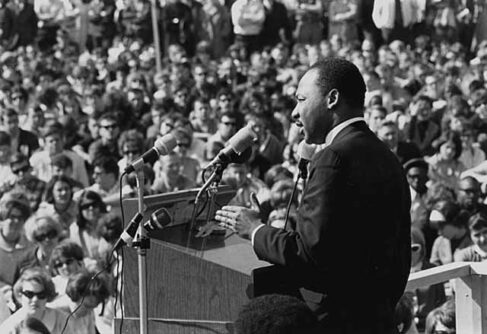In Monday’s Washington Post, columnist Fred Hiatt makes the case for the Obama administration’s efforts to cut the value of the charitable deduction.
Picking up on the Obama administration’s theme of “fairness” between rich and poor, Hiatt makes the case that the charitable deduction is simply “unfair”:
The deduction lets people feel they are beating the system even as they practice virtue.
But there’s a question of fairness that complicates the issue. Overwhelmingly, the deduction benefits the wealthy -- and the rest of the country has to make up the gap.
The gap in what? The gap between how much government is spending on various programs and how much more it could be spending. Hiatt is bold in acknowledging the range of institutions that would be harmed by removing the charitable deduction:
Churches, museums, cancer societies, colleges and other nonprofit institutions . . . the rich fabric of American’s civic life, from Boy Scouts to community orchestras to soup kitchens.
Hiatt admits that these institutions would all be harmed by reducing or eliminating the charitable deduction. At least he has the guts to acknowledge that there would be a genuine harm from eliminating the charitable deduction -- unlike those who pretend charitable giving would not be affected or argue that philanthropists should be shamed into giving at the same levels as in the past.
But what good would we get in exchange for reduced support of such civic institutions? An enhanced ability to support, with tax dollars, a wide range of government institutions and programs:
School funding . . . medical research, Native American health, AIDS treatment in Africa, student loans, national parks, border security, prison reform.
Hiatt concludes:
You need to keep all of them [these government programs and their beneficiaries] in mind as you decide how much you want to pay to help renovate that hospital wing with the billionaire’s name above the door. (emphasis added)
How much you want to pay? When the philanthropist is paying the big bill for the hospital wing?
Hiatt is here engaged in the politics of envy and trading on the feeling that it’s “unfair” that there are billionaires who can indulge their vanity by paying for hospital wings.
There’s two flaws with this argument. First, Hiatt focuses on the benefit to the billionaire who claims his tax deduction and enjoys the ego stroke of seeing his name above the door to the hospital wing (note that Hiatt seems to ignore the possibility that the billionaire might be exercising genuine virtue).
But is the billionaire really the one who benefits most? I had a particularly visceral reaction to this example. Our youngest child was born with a severe, but today correctable, birth defect. As a newborn, she was accepted as a patient of a renowned surgeon at Johns Hopkins Medical Center. We spent a lot of time at Hopkins, and it was abundantly clear that many wealthy philanthropists’ gifts had made possible the extraordinary level of care available at Hopkins, beginning, of course, with the bequest of Johns Hopkins himself.
One of the smallest, but to me most touching, such gifts was a beautiful rocking chair given by a Hopkins patient’s parents, available for a last pre-surgery cuddle in the anteroom to the pediatric operating theatre. But throughout the hospital there were signs bearing the names of philanthropists who provided all kinds of different tools and facilities, which are available not only to the wealthy, or to middle-class families like ours, but to people from all walks of life. Our daughter had a very successful treatment because she received a level of care beyond what was available at a public, county hospital and made possible by the philanthropists who support Hopkins. So, who benefited? Well, our family benefited tremendously -- and I’m never going to be a billionaire or have my name over a door.
Second, Hiatt accepts that it’s simply acceptable to have civil society wither as government grows; that if there isn’t enough money to fund government programs, it must be drawn from civic institutions like Boy Scouts, community orchestras, and soup kitchens; that when you “pay” for a billionaire’s charitable deduction you’re worse off than you would be if the government had more money to spend.
However, this is to assume that America really can flourish without the robust civic institutions long typical of American social and political life and which have been persistently undermined in the last few years. As Yuval Levin recently put the matter in the Weekly Standard:
The real debate forced upon us by the Obama years -- the underlying disagreement to which the two parties are drawn despite themselves -- is in fact about the nature of that intermediate space [between the individual and the state], and of the mediating institutions that occupy it: the family, civil society, and the private economy.
Progressives in America have always viewed those institutions with suspicion, seeing them as instruments of division, prejudice, and selfishness and seeking to empower the government to rationalize the life of our society by clearing away those vestiges of backwardness and putting in their place public programs and policies motivated by a single, cohesive understanding of the public interest. Progressive social policy has sought to make the family less essential by providing for basic material needs, particularly for lower-income women with children. It has sought to make civil society less essential by assigning to the state many of the roles formerly played by religious congregations, civic associations, fraternal groups, and charities, especially in providing help to the poor.
Hiatt would have us think that giving to charity and claiming a deduction is merely “beating the system.” But, in fact, there are philanthropists who use the deduction to contribute to the American “system” (better called “society”) that they believe in -- a community of intermediate associations, neighbors, and philanthropists, all looking out for the common good.





